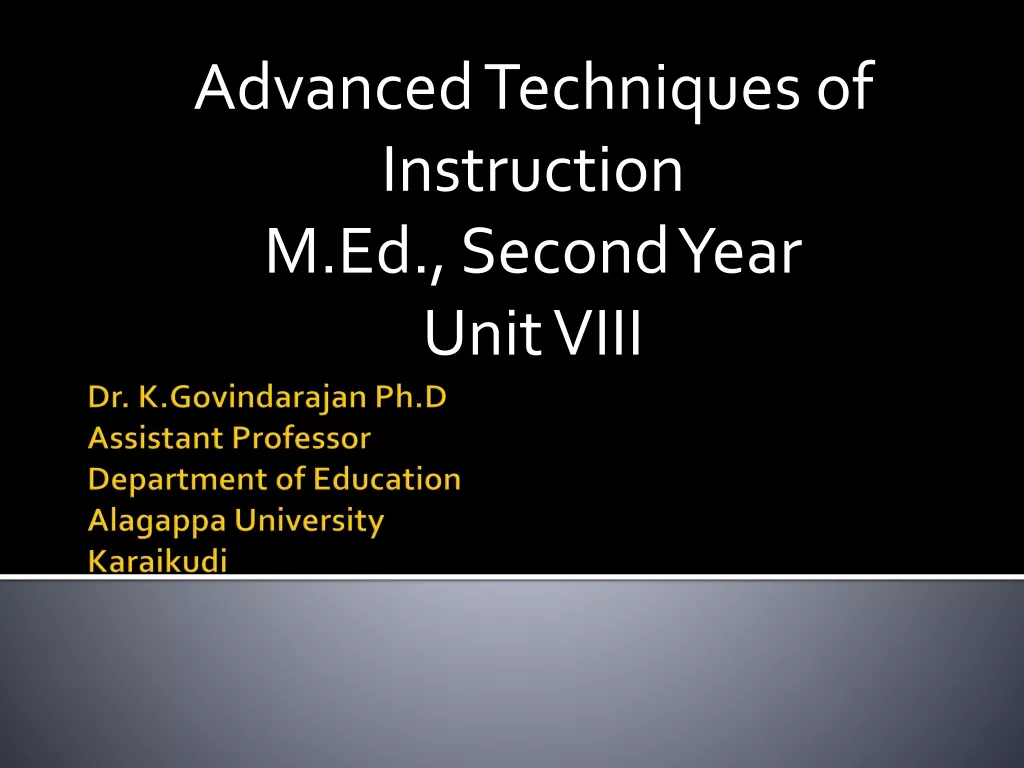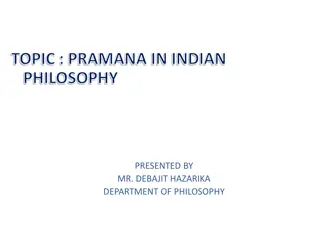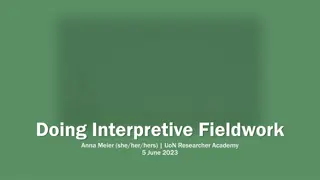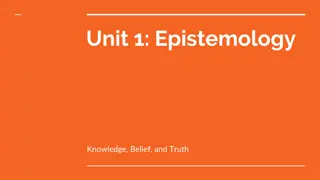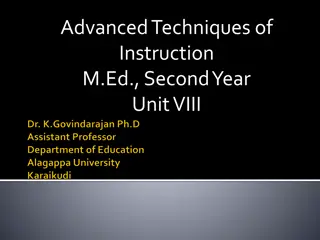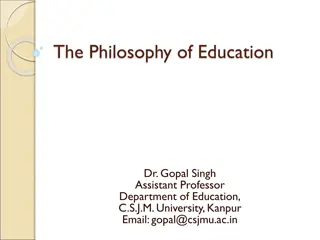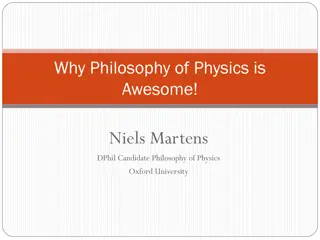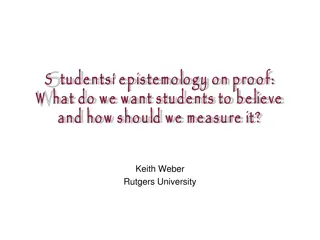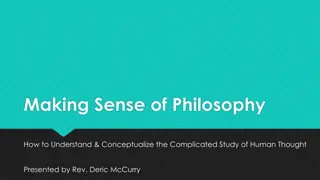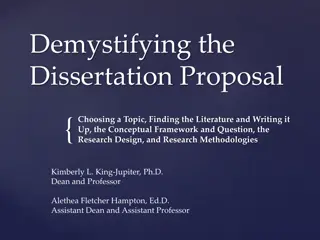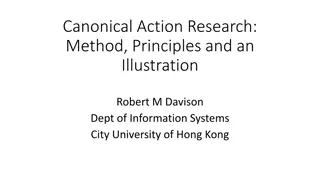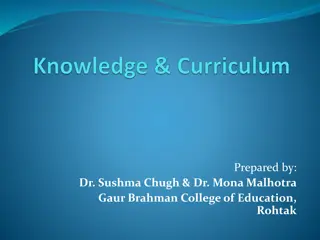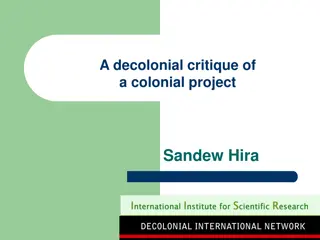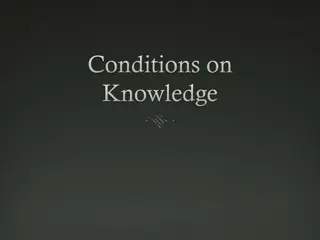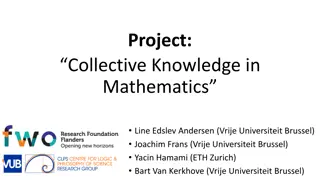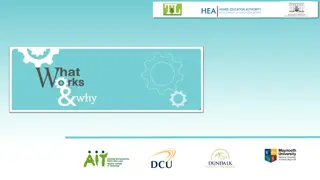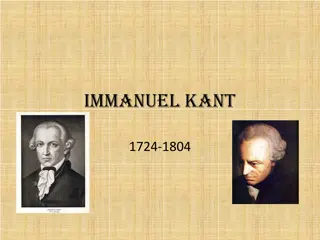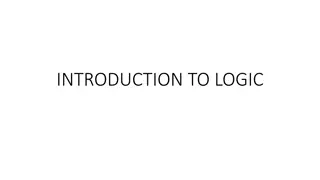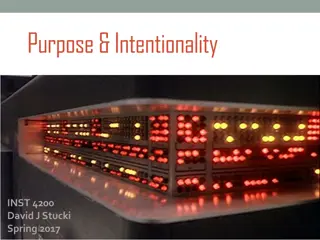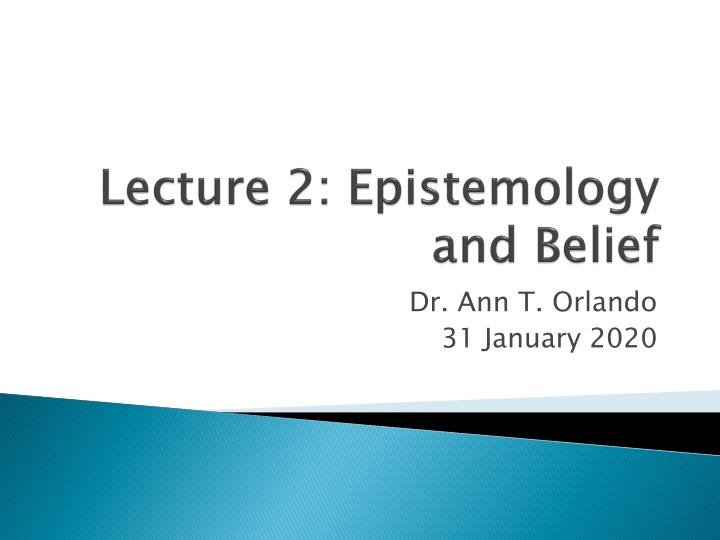
The Relationship Between Happiness, Truth, and Belief in the Works of Augustine
Explore the profound insights of Augustine regarding the connection between happiness, truth, and belief. Delve into his teachings on the importance of divine illumination, the pursuit of knowledge, and the attainment of truth through God's guidance. Discover how Augustine challenges skeptics and emphasizes the role of sapientia in leading us to a joyful life grounded in eternal truths.
Download Presentation

Please find below an Image/Link to download the presentation.
The content on the website is provided AS IS for your information and personal use only. It may not be sold, licensed, or shared on other websites without obtaining consent from the author. If you encounter any issues during the download, it is possible that the publisher has removed the file from their server.
You are allowed to download the files provided on this website for personal or commercial use, subject to the condition that they are used lawfully. All files are the property of their respective owners.
The content on the website is provided AS IS for your information and personal use only. It may not be sold, licensed, or shared on other websites without obtaining consent from the author.
E N D
Presentation Transcript
Dr. Ann T. Orlando 31 January 2020
Relation between happiness and truth Relation between truth and belief Against the Academics On the Usefulness of Belief Arians On Lying
The happy life is joy based on truth. This is joy grounded in you, O God, who are the truth, my illumination Conf. 10.23.22, Chadwick Note that one cannot be happy without access to the truth (veritate) All truth flows from God who is Truth itself Truth is external to me (objective) Only through God s illumination can I ascertain the truth, and have it affect me Truth should define me; I don t define truth
Delivered in Hippo shortly after Augustine was ordained bishop (c. 395) Context Easter Sunday; Text is John 1:1-3 (same as Sermon 117) Note relation between happiness and the Truth Importance of preaching the Word
Knowledge (scientia) is available through our sense But this is knowledge of the changing material world Augustinian cogito, one thing I can know is that I am alive; see On Happy Life 2.7 Wisdom (sapientia) is illumination from God about the eternal unchanging Truth It is sapientia that leads us to happiness But there is not a fence between sapientia and scientia. Sapientia should guide us toward useful knowledge in this world Scientia may help us in our quest for sapientia (such as biblical interpretation) The interesting question of mathematics: is it scientia or sapientia Augustine will argue (along with Platonists of all stripes) it is sapientia Mathematics are part of the Truth found in God, not empirically
Strictly speaking, we cannot know anything (scientia or sapientia) without divine illumination Like Platonists, Augustine believed illumination acted specifically on our memory Unlike some Platonists, Augustine believed this was a direct gift from God, and not a result of remembering from a past life
Skeptics: truth cannot be known Ancient skepticism is an off-shoot of Platonism A wise man will withhold all judgment Augustine s argument in opposition: Against the Skeptics Manichees Truth is attainable through carefully trained reason (ratio and scientia) Changing world is in opposition to pure reason Only by rejecting the material can reason rise to truth Augustine s argument in opposition: Against Faustus, the Manichee; Against the Fundamental Epistle of Mani; On Usefulness of Belief The Arians Christians who rejected the divinity of Christ Offered their own interpretations of Scripture to support this view Augustine s argument in opposition: Against an Arian Sermon; Sermon 117
Contra academicos Written while Augustine was at Cassiciacum, c. 386 Setting is a symposium, much like the On Happy Life Note that Augustine briefly considered becoming a skeptic (see Conf. V) Against the Skeptics is the earliest preserved text written by Augustine
Book I: Introduction Book 2: Argument that it is plausible that we can know some things Book 3: Types of knowledge Logical claims Mathematical Truths Truth based on appearance Moreover, no one doubts that we are urged on to learn by the twin weight of authority and reason. Therefore I am determined not to part from the authority of Christ, for I find no authority more powerful. (c. academicos 3.20.43; Michael Foley translation, Against the Academics, p 112.)
Anselm was NOT the first to say I believe that I may understand. Augustine was BUT Augustine was not the first either; he thought he was referring to Is 7:9 if you do not believe you will not understand This is the LXX not the Masoretic text But how to know what to believe: the authority of the Church based on Scripture I would not believe the Gospel unless the authority of the Catholic Church moved me. (c. ep of Mani 5
De utilitate credendi First book written after ordination to priesthood (391) Written to a friend, Honoratus, who was a Manichee Manichaeism asserted a purely rational religion, with no need for faith Claimed to be solely reliant on scientia
Divided into sections Introduction, 1-3 Properly understanding the Old Testament 4 13 Relationship between Religion and Wisdom (sapientia), 14 - 20 Relationship between faith and reason, 21-29 See the Retractions for different meaning of knowing (scientia) Belief in Jesus Christ, 30-35
Relying on authority of Christ and Scriptures is the sure way to Truth and eternal life and thus happiness Thus one must have the proper interpretation of Scripture to know Jesus Christ For Augustine, this is the most important teaching function of the Catholic Church and her bishops The Arians err because they do not have the right understanding of Jesus Christ due to their misinterpretation of Scripture
Delivered, likely in Hippo, on John1:1-3. One of Augustine s Christological homilies Specifically against the Arians Likely written c 420 Most likely written as Augustine was writing or finishing his response to an Arian sermon, Contra Sermonem Arianorum
The importance of giving whole self to purchase knowledge of Truth Understanding does not come from human words but the Word of God (Wisdom of God) Word is beyond out material knowledge Need to confess ignorance Need to rely on authority of Catholic Church Comparison of God in mind (memory) and eyes seeing material things Analogy of coeval things with coeternal Example of lamp and brightness Word became flesh to teach us how to arrive at eternal happiness We must become humble to learn and be healed by the Doctor Importance of charity
Many Church Fathers accepted the notion of a charitable lie Support for this is that both OT and NT at times seems to approve of deception in support of a greater good Of special note is Gal 2:11-14 Paul accuses Peter of deception Jerome in his commentary suggests Paul s rebuke of Peter was a pretense Jerome follows Origen in this interpretation Augustine and Jerome trade several letters in which Augustine argues against this view Letters 28, 40, 75, 81 and 82
Written in 395 during the time of the controversy with Jerome. One book, divided into 21 chapters See chapter 8 on discussion of Gal 2:11-14 Ch3: Definition of a lie; what we have in the CCC Ch 14: 8 types of lies, of decreasing severity Ch 21: Conclusion and back to Gal Later in his life, Augustine wanted this book destroyed in favor of Against Lying See Revisions #27.
Written in 420 as a response to a letter by Consentius Repeats much of On Lying Definition of a moral act in Ch 7 Cause, end, intention But lying as intrinsically wrong can never be part of a good moral act Emphasis that a Catholic should not lie even to fight a heretic (Priscillians) Opposed to Catholic spies against the Priscillians, Chapter 18
Sermon 120 (handout) On the Usefulness of Belief, in Augustine: Earlier Writings Sermon 117 in Essential Sermons On Lying, in FC 16; especially Ch. 1-3, 14 and 21. On my website. Emphasis in paper should be On Usefulness of Belief and the Sermons OPTIONAL Against the Academics, in Augustine: Earlier Writings Revisions to both Against the Academics and Usefulness of Belief Optional
Peter King, Augustine on Knowledge, Ch 8 in Cambridge Companion to Augustine Ryan Topping, Happiness and Wisdom Myers, Jason. Law, Lies, and Letter Writing: An Analysis of Jerome and Augustine on the Antioch Incident (Galatians 2:11-14) . Scottish Journal of Theology Vol 66 Issue 02, May 2013, 127-139. Carol Quillen, A Tradition Invented: Petrarch, Augustine and the Language of Humanism, Journal of the History of Ideas Vol. 53 No. 2 (Apr- Jun 1992), pp. 179-207.

